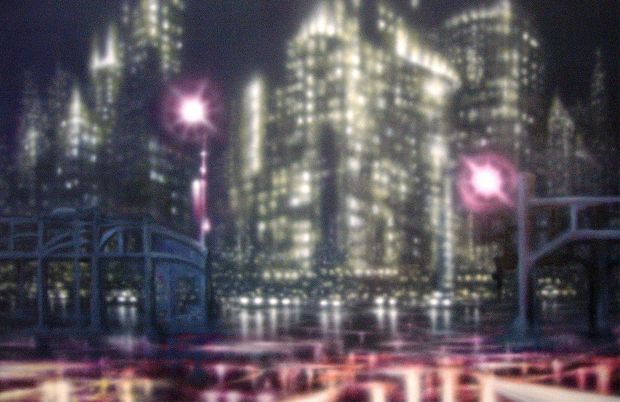Contemporary art from Slovakia, Frankfurt am Main, Germany
22 June 2006 - Exhibition of contemporary art from Slovakia
Erik Binder & Gabika Binderová, Robo Kočan, Marko Blažo, Stano Masár, Stano Bubán, Ilona Németh, Michal Černušák, Roman Ondák, Ivan Csudai, Lucia Tkáčová & Anetta Mona Chisa, Michal Czinege, Martin Sedlák, Richard Fajnor, Erik Šille, Bohdan Hostiňák, Filip Vančo, Dorota Kenderová, Emőke Vargová
On Thursday, 22 June 2006 the European Central Bank (ECB) officially opened the 14th exhibition in its series “Contemporary art from the Member States of the European Union”. This year’s exhibition focuses for the first time on one of the new EU Member States, Slovakia, and has been organised in close cooperation with Národná banka Slovenska, Slovakia’s central bank. Over the past few years, an incredibly vibrant and interesting art scene has developed in Slovakia, worthy of international attention.
Polarising concepts such as "eastern art" and "western art", which influenced the comparative art history debate within the European art scene well into the 1980s, have now become obsolete. Since the 1960s, in what is today Slovakia, decisive impulses have come – as in western Europe – from minimalist, conceptual and action art, but artistic contacts with these innovative trends were very much limited. These trends were not part of the State-approved body of art and were therefore banned from official exhibitions; a situation which only began to change from the mid-1980s.
The ECB will exhibit around 60 works by 20 artists, covering a broad spectrum of contemporary Slovak art in its various forms: painting, graphics, installations, video art and photography. Most of the artists featured in this exhibition did not experience the difficult era of restricted artistic freedom, and are therefore free to approach a multitude of forms of expression and content with liberated subjectivity.
An important role in contemporary Slovak art is played by current global issues, such as the discussions on globalisation, popular culture and virtual realities. At the same time, many artists incorporate into their works the history and current situation of their own country: themes such as daily life and tradition, which were typically idealised in the artworks of “socialist realism”, are picked up and recast in an ironic or humorous way. For example, in the video “Sunday Army“, produced by Gabika Binderová and Erik Binder, a prefab concrete housing estate comes crashing down as the residents collectively hammer away at their traditional Sunday schnitzel; and Anetta Mona Chisa and Lucia Tkáčová have their fortunes told by a clairvoyant from Karl Marx's “Das Kapital". Artists such as Richard Fajnor comment on the livelihood of artists on the fringes of the international art scene in performances where he stands in front of major museums begging for money for his projects.
The exhibition is augmented by works on loan from the art collection of Národná banka Slovenska and objects by the young glass artist Oliver Leššo.
The exhibition was opened by Jean-Claude Trichet, President of the ECB, and Ivan Šramko, Governor of Národná banka Slovenska.
Duration of exhibition
The exhibition will run from 23 June to 8 September 2006.
An exhibition catalogue will be published in English.
Venue
European Central Bank, Kaiserstrasse 29, 60311 Frankfurt am Main, Germany.
The exhibition can only be visited as part of pre-booked guided tours.

